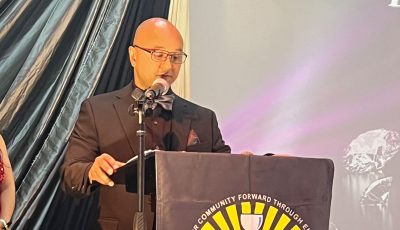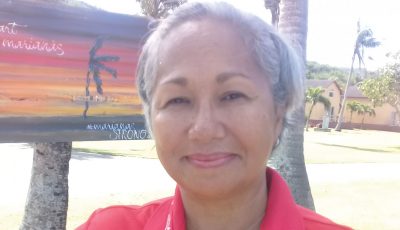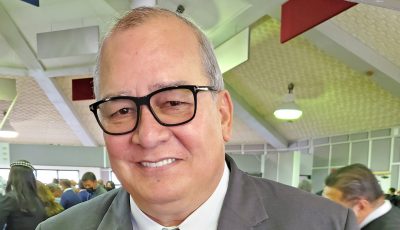BREAKING NEWS: Kilili bill seeks permanent status for legacy workers
First legislation of 'Agenda 116'
WASHINGTON, D.C.—Delegate Gregorio Kilili C. Sablan (Ind-MP) has introduced legislation that would give legacy CW workers permanent status in the Marianas and after five years a path to U.S. citizenship.
The Northern Mariana Islands Workforce Stabilization Act, as it is titled, is the first of a series of bills Sablan is rolling out to set his agenda for the 116th U.S. Congress, which begins in January 2019.
“The President has now signed into law our U.S. Workforce Act, U.S. Public Law 115-218. It extends the immigration transition period until 2029 and increases the number of CW permits for next year to 13,000,” Sablan said. “Public Law 115-218 also allows us to identify ‘legacy’ workers, long-term employees who have proven their value to the Marianas economy; and the new law makes them eligible for three-year CW permits.”
Public Law 115-218 defines long-term workers as those who held CW permits for all of the last four years: fiscal years 2015, 2016, 2017, and 2018.
“But we have to start preparing for the gradual decrease in the number of CW permits over the next 10 years,” Sablan explained. “The new NMI Workforce Stabilization Act does that. It gives legacy workers permanent status, so they will not need CW permits and they and their families can become full members of our community.”
Sablan’s new bill is H.R. 6578. There are 14 original co-sponsors.
A long-held goal
This is not the first time Sablan has worked to get permanent status for legacy workers. In 2013, he successfully included his status provision in immigration reform legislation that passed the U.S. Senate 68-32. But the Republican-led House failed to act on the bill, S.744, the Border Security, Economic Opportunity, and Immigration Modernization Act.
Sablan also introduced a status bill in 2011. It was agreed to by both the Natural Resources and Judiciary Committees and placed on the House calendar for a vote. Opposition from the CNMI government, however, prevented further action.
More recently, however, the Commonwealth government reversed position. Section 902 negotiators proposed permanent status for legacy workers in their 2016 report to then-President Obama.
“The Special Representatives support congressional action to make long-term guest workers and their families with significant equities in the CNMI eligible for lawful permanent resident status with a path to citizenship,” their report read.
Gov. Ralph DLG Torres led the Marianas 902 team, along with principals Marianne Teregeyo and Edith Deleon Guerrero.
E-2C investors also included
One group the 902 team did not recommend for permanent status was E-2C investors. These investors were first admitted to the Marianas under the Commonwealth’s own immigration law. And, under Sablan’s recently enacted U.S. Workforce Act, the E-2C investors and their families are allowed to remain in the Marianas as nonimmigrants through 2029.
Sablan’s Workforce Stabilization Act goes farther. It provides these business people permanent status in the Marianas and after five years a path to U.S. citizenship.
“Our own Commonwealth immigration law decided that these investors were of value to our economy,” Sablan said. “There are approximately 200 of them, who remain in the Marianas. And they are still economically important, providing jobs and adding to the revenue stream for the Commonwealth.
“So, I have included these investors in my Workforce Stabilization Act. I hope this will encourage them to invest even more in our islands.
‘Agenda 116’
Looking ahead to the 116th Congress that begins in January next year, Sablan is laying out what he calls his “Agenda 116.” The Workforce Stabilization Act is the first bill on this legislative “to-do” list.
“I started each Congress with a very specific goals,” Sablan explains. “Identifying priorities and staying focused is one of the reasons I have been successful.
“Getting my U.S. Workforce Act enacted was the major priority for this, the 115th Congress. Increasing education funding was my priority in the 114th Congress, and getting the SNAP pilot program was the goal in the 113th Congress. I have learned to concentrate my efforts on legislation that will do the most good for the Marianas and—in each Congress—stay focused on where the best opportunity for success is.”
Sablan reached his goals of a SNAP pilot program, more money for Marianas schools, and extension of the immigration transition period with new laws in each of these Congresses.
“Now, with the real possibility of a change in the majority in the House of Representatives in the 116th Congress, with Democrats in charge, I want to be ready to go on day one with my Agenda 116,” added Sablan. (PR)




























